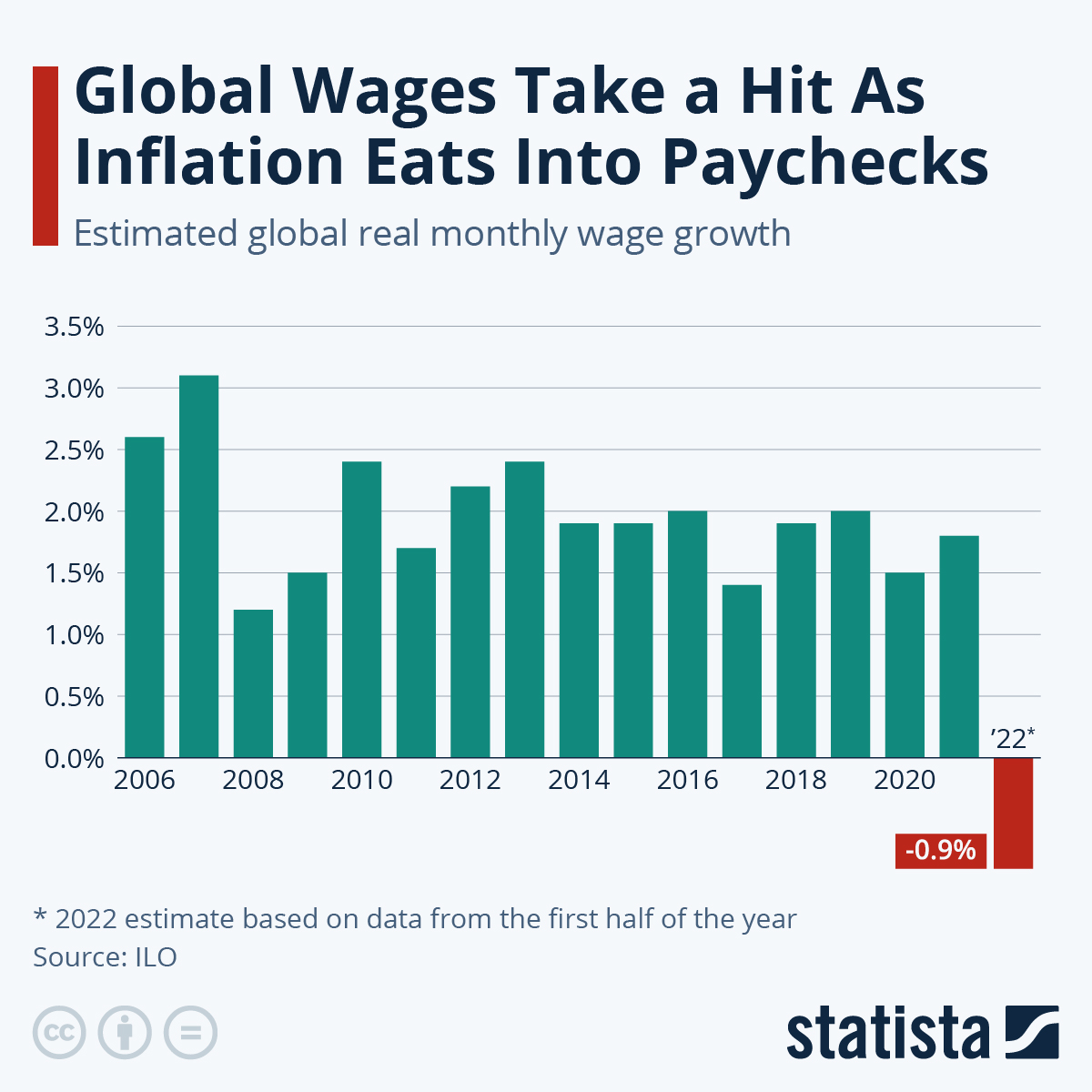The global inflation crisis paired with lackluster economic growth and an outlook clouded by uncertainties has led to a decline in real wages around the world, a new report published by the International Labour Organization (ILO) has found. According to the 2022-23 Global Wage Report, global real monthly wages fell 0.9 percent this year on average, marking the first decline in real earnings at a global scale in the 21st century.
The multiple global crises we are facing have led to a decline in real wages. It has placed tens of millions of workers in a dire situation as they face increasing uncertainties,” ILO Director-General Gilbert F. Houngbo said in a statement, adding that “income inequality and poverty will rise if the purchasing power of the lowest paid is not maintained.”
While inflation rose faster in high-income countries, leading to above-average real wage declines in North America (minus 3.2 percent) and the European Union (minus 2.4 percent), the ILO finds that low-income earners are disproportionately affected by rising inflation. As lower-wage earners spend a larger share of their disposable income on essential goods and services, which generally see greater price increases than non-essential items, those who can least afford it suffer the biggest cost-of-living impact of rising prices.
“We must place particular attention to workers at the middle and lower end of the pay scale,” Rosalia Vazquez-Alvarez, one of the report’s authors said. “Fighting against the deterioration of real wages can help maintain economic growth, which in turn can help to recover the employment levels observed before the pandemic. This can be an effective way to lessen the probability or depth of recessions in all countries and regions,” she said.
You will find more infographics at Statista
Ask me anything
Explore related questions






